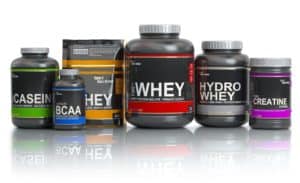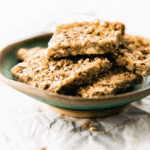Nowadays, pre-workout supplements are just as popular among exercise enthusiasts as protein. However, just like protein, not every pre-workout supplement is the same. Each one has a diverse mix of ingredients in varying doses with different intended effects. Whether you’re looking to get a few more reps in, or just increase your endurance, a good pre-workout can go a long way.
In the article, we’re going to dive right into the pre-workout rabbit hole and discuss everything you need to know about how to choose the right pre-workouts, how they work, and the benefits of including them in your workout routine.
What Are Pre-Workout Supplements?
If you don’t have the slightest idea as to what pre-workout supplements are, this section is for you. For you to make the most out of your workouts, your body needs to be operating at its maximum capacity. If you engage in rigorous exercises without pre-workout supplements, of course, you’ll feel less energized and will tire more quickly than usual.
Pre-workout supplements are designed to help supply you with extra energy for longer, more efficient workouts. Supplements come in many forms — pre-workout pills, powder, and more — with each differing in ingredients and effects.
How Do Pre-Workouts Work?
Pre-workout supplements are commonly blended with a drink and taken about 30 to 35 minutes before a workout. By providing your body with additional carbohydrates, the glucose in the pre-workout helps boost blood sugar levels and supply extra energy while working out.
Designed to assist you through strenuous workouts, it shouldn’t come as a shock to learn that they supply your body with caffeine, sugar, and other energizers. As aforementioned, pre-workouts are not created equal, so, pay attention to the ingredients before you invest in a pre-workout.
When Should I Take a Pre-Workout?
It depends on the product. Generally, taking it 30 to 35 minutes before training will provide you the energy you require right when you need it. But some are stronger than others. Always read the label of your pre-workout to make sure you’re doing it right.
Some heavy hitters will drink it as they work out to keep supplying their bodies with the energy they need for longer and harder workouts. If this does not sound like you, don’t attempt it. Stick to the 30-minute mark.

Benefits of Pre-Workouts
Some people believe that pre-workout supplements are harmful to your health. Although that may be true if you take them in excessive quantities, when taken adequately, they have some evident benefits.
The caffeine in most pre-workout helps burn fat. An early study revealed that caffeine boosts energy by almost 11%, which promotes calories and weight loss. In addition, caffeine also increases adrenaline, which helps break down fat cells quicker.
Creatine, another ingredient found in pre-workouts, needs to be stored in your muscles with sufficient quantities of water. Consequently, creatine tends to attract more liquids into your muscles, helping to grow them with the rise in water mass.
Besides providing you with extra energy, pre-workout supplements also help you recover. Working out until failure is the best way to gain muscle mass fast; however, it’s also the best way to get sore- we’re talking about severe soreness. The ingredients mentioned above lessen muscle soreness and boost glucose levels after intensive workouts, helping you recover quicker.
Pre-Workouts vs. Energy Drinks
Energy drinks have some of the same energy-boosting potentials as pre-workouts. They can boost endurance and power while reducing your sense of tiredness. They can even help you concentrate during a heavy workout. However, energy drinks are not as packed as pre-workouts in terms of essential ingredients. When it comes to the particular difficulties of tough training, you may not be supplying your body with the right elements to accomplish them.
Common Pre-Workout Ingredients
1. Creatine
Creatine is a natural element that is found in muscle cells. It helps your muscles generate energy during intense exercise. Taking creatine as a supplement is very common among gym-goers in order to obtain muscle mass, intensify power and performance.
2. BCAAs
BCAAs help you develop muscles and reduces muscle injury. Taken as a pre-workout supplement, they can also help reduce muscle soreness, allowing you to get back to exercising harder than ever. Additionally, they suppress mental and physical exhaustion during your exercises.
3. B-Vitamins
B-vitamins play an important part in sustaining good health. B vitamins directly affect your energy levels, cell metabolism, as well as brain function. Some systems that they support include:
- Cell vitality
- Energy levels
- Healthy eyesight
- Good digestion
- Growth of red blood cells
- Normal appetite
- Proper nerve function
- Cardiovascular health
- Muscle tone
4. Caffeine
Caffeine provides quick energy you can utilize for both endurance exercises and shorter duration exercises, such as lifting. In addition, it has been confirmed to enhance strength and endurance and even decrease muscle soreness after heavy workouts. Caffeine is the essential ingredient to look out for when shopping for pre-workout supplements as the content can vary from mild to extreme in some supplements.

What Are the Best Pre-Workout Supplements?
There are thousands of pre-workout supplements out there. Finding the best pre-workout supplements is not always so simple; even if you know how to read labels and are looking out for red flags. Lucky for you, we’ve got you covered. Let’s take a look at the 7 best pre-workout supplements you should consider including in your gym routine.
- Bone Broth Powder
- Optimum Nutrition Gold Standard Pre-Workout
- Cellucor C4 Original Pre-Workout
- Bulk Powders Complete Pre-Workout, Caffeine-free
- Grenade 50 Calibre Pre-Workout
- Transparent Labs BULK
- Kaged Muscle Pre-Kaged
Are There Natural Pre-workout Supplements?
Yes, there are. Some of them are not so hard to find. You probably have some at home.
Coffee: If you are looking for the best natural pre-workout supplement, look no further than coffee. Coffee provides all the ingredients you need to up your energy levels before a workout.
Bananas: Bananas are loaded with starchy carbohydrates. Consuming one banana will provide you with 14g of sugar, made of glucose and fructose – two sugar varieties that are perfect for high-performance activities. Additionally, bananas are abundant in potassium as well as magnesium, providing electrolytes to your body. Each banana contains around 20-27g of carbohydrates, feeding your muscles before vigorous exercises.
Coconut Water: Similarly to bananas, coconut water is naturally packed with electrolytes. Drinking coconut water will help amp up your body’s electrolyte stocks. Forget about energy drinks, coconut water contains more nutrients per serving, making it a healthier alternative to industry-leading energy drinks.
What Pre-Workouts Should I Avoid?
Recent research published in Food and Chemical Toxicology indicated that 400mg of caffeine a day is the limit for adults. To put things into perspective, one cup of instant coffee contains around 65-85mg of caffeine. Your favorite Starbucks espresso contains about 160mg.
While these offer a safe amount of caffeine, some pre-workout products exceed the suggested daily dose. ProSupps Mr. Hyde NitroX pre-workout, for example, contains a staggering 410mg of caffeine in a 7.5g scoop.

Do Pre-Workouts Have Side Effects?
Pre-workout, when taken in adequate doses, can be an excellent choice for a strength and energy boost. But, if it’s not used properly can come with a myriad of unwanted side effects. Such side effects may include vomiting, cramps, high blood pressure, jitters, and even cardiac arrest. Let’s explore some of those side effects.
Caffeine is one of the main elements in most pre-workout supplements. This natural energizer has been proven to improve muscle strength and performance output during training. However, caffeine too has many possible side effects, particularly if you drink too much. These side effects include nausea, sleeplessness, drowsiness, neuralgias, increased heart rate, nervousness, and jitteriness.
Another potential side effect is increased water retention. Another common ingredient in most pre-workout products is creatine. Although creatine offers several benefits, such as increasing high-intensity exercise capacity and body mass gains from exercise, it does have some side effects worth discussing. Worry not, the side effects associated with creatine are not life-threatening – water retention, weight increase, and digestive complications.
Many ingredients in pre-workout supplements may induce digestive upset. Sodium bicarbonate can cause issues when ingested at 90–226mg per pound of body weight. Lucky for you, most pre-workout supplements do not have this much in them.
Magnesium may produce laxative effects. When taken in high quantities, it may cause diarrhea. Lastly, not using enough water when blending pre-workout supplements may also upset your metabolism. On the other hand, pouring too much in the mix could lead to diarrhea. To avoid these side effects, read the label of your pre-workout carefully and proceed as instructed.







